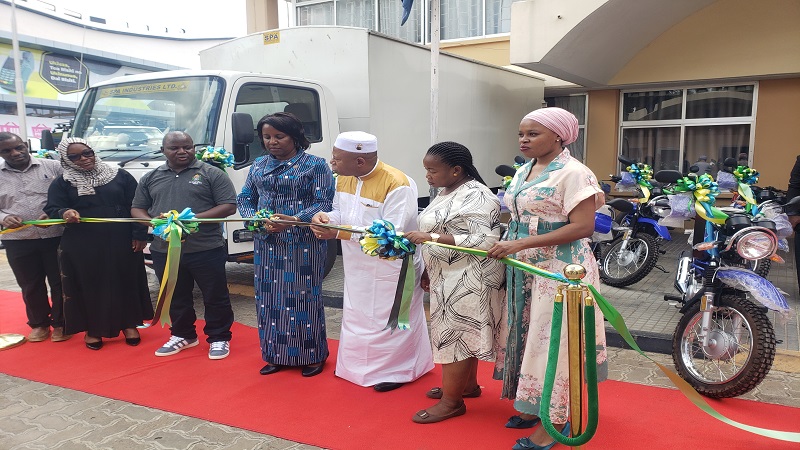Embracing AI in SA as a path to inclusive growth, social justice

AS South Africa stands on the edge of the Fourth Industrial Revolution (4IR), the quick advancement of artificial intelligence (AI) presents tremendous opportunities and significant challenges for our nation.
AI’s transformative potential is undeniable, with the power to drive economic growth, establish new industries, and significantly improve the quality of our public services.
However, as we navigate this technological frontier, we must steadfastly align AI development with the principles of our democratic culture, ensuring that it serves the needs of all South Africans, not just the privileged few. This alignment will reassure us of the ethical use of AI.
The promise and perils of AI
AI is swiftly becoming a significant driving force behind global economic and social change. This revolution offers South Africa a unique blend of promise and peril.
On the one hand, AI can accelerate growth in critical sectors such as healthcare, agriculture, and education – areas that are essential to our nation’s development. It can potentially optimise resource use, enhance service delivery, and spur innovation, creating new economic and social justice opportunities.
The practical benefits of AI in these areas are tangible and can significantly improve the lives of all South Africans. Moreover, AI has the potential to generate new industries, which should excite us about the future.
However, the rise of AI also poses significant challenges. South Africa’s high unemployment rate raises concerns about the potential for AI-driven automation to displace jobs, exacerbating existing inequalities.
Moreover, the digital divide could deepen if access to AI technologies and their skills is not distributed equitably. This is not just a concern, but an urgent call to action, reminding us that if not managed carefully, AI could become a tool that expands the gap between the haves and the have-nots, rather than bridging it.
Shaping the future of work
As we look to the future, AI will fundamentally reshape the work environment across various sectors of our economy. This shift will necessitate a new way of thinking about jobs and skills, demanding adaptation and change. AI is set to automate many routine tasks but will also create new roles that demand creativity, problem-solving, and emotional intelligence – inherently human qualities.
The challenge for South Africa is to ensure that this transition to an AI-driven work environment is not just inclusive, but also equitable. We must focus on creating opportunities for all South Africans, regardless of their background, to participate in this new economy.
The promise of our democratic revolution is a society where everyone has the chance to thrive, and AI must be harnessed to help us deliver on this promise. This goal is not just important, it’s essential for the future of our nation.
Preparing South Africa for an AI-driven future
South Africa must prioritise education and skills development to prepare for the AI-driven future. Our education system needs to be reimagined to equip the next generation with the skills they require to thrive in an AI-driven world.
This includes technical skills, critical thinking, creativity, and adaptability. A multi-disciplinary approach to education – one that encourages cross-disciplinary learning and allows students to connect the dots between different fields – will be essential.
My journey as an engineering student, during which I also explored psychology, history and acting, underscores the value of this multidisciplinary approach. These seemingly disparate fields have enriched my understanding of human behaviour, historical context, and the power of communication – all crucial elements in navigating an AI-driven world.
The most impactful innovations often emerge at the intersection of disciplines, and we must cultivate an educational environment that fosters this kind of cross-pollination of ideas.
In addition to preparing the next generation, we must address the skills gap in our current workforce through upskilling and reskilling initiatives.
Furthermore, investing in digital infrastructure to bridge the digital divide is fundamental to ensuring that all share the benefits of AI. Access to technology and the skills to use it are the foundations upon which an inclusive AI-driven economy must be built.
Ethical and Social Considerations
As we embrace AI, we must confront its ethical and social implications. AI systems must be constructed and deployed in ways that reflect our societal values, promote fairness, and prevent discrimination. This requires robust frameworks to govern the use of AI, ensuring transparency, accountability, and inclusivity.
The governance of AI must be democratic and participatory, involving all stakeholders – government, civil society, academia, and the private sector – in shaping the policies and regulations that will guide AI development and use. The people of South Africa must shape the future of AI in South Africa. We need clear standards, policies, and legislation to guide AI’s ethical and responsible use, protecting individuals and society from potential harm.
The governance of AI in South Africa must be thoughtfully structured to ensure that this powerful technology is used ethically and equitably. Specifically, our focus should be on the following key areas:
We must ensure that the data used to train AI systems is representative of our diverse population, free from biases that could perpetuate inequality, and collected with complete transparency and proper consent. This is crucial, and will help prevent discriminatory outcomes and ensure that AI systems are fair and just.
AI algorithms must be transparent and explainable. The era of “black box” decision-making – where the processes behind AI-driven decisions are opaque and inaccessible – must end. By promoting algorithmic transparency, we can foster trust and accountability in AI systems.
As AI systems often require substantial computational power, addressing the environmental impact of these demands is essential. Moreover, ensuring equitable access to computing resources will be vital in preventing a technological divide that could exacerbate existing inequalities.
It is imperative to establish clear guidelines for the safe and responsible exploitation of AI across various sectors, from healthcare to finance. These guidelines should prioritise the public good, protect privacy, and ensure that AI is used to enhance societal well-being.
By focusing on these areas, we can guide the development and deployment of AI in a way that aligns with South Africa’s values and goals, ensuring that this powerful technology contributes to a more equitable and just society.
Fulfilling the promise of our revolution
The future of work in an AI-driven world presents opportunities and challenges for South Africa. While AI can drive economic growth and improve quality of life, we must ensure that this transformation benefits all South Africans. The democratic ethos calls for a just and equitable society, and we must ensure that AI contributes to this vision.
By investing in education, guided by the principles of multi-disciplinary learning, skills development and digital infrastructure, and addressing ethical challenges head on, we can harness the power of AI to create a work environment that is innovative, inclusive, and reflective of our national values.
With a clear understanding of AI’s limitations and possibilities and robust and democratic governance frameworks in place, we can build a future where technology serves the needs of all our people, ensuring that our country remains a place of opportunity, dignity, and progress for all.
In doing so, we will be embracing the future and fulfilling the promise of our democracy.
By Tshilidzi Marwala
Top Headlines
© 2025 IPPMEDIA.COM. ALL RIGHTS RESERVED

























